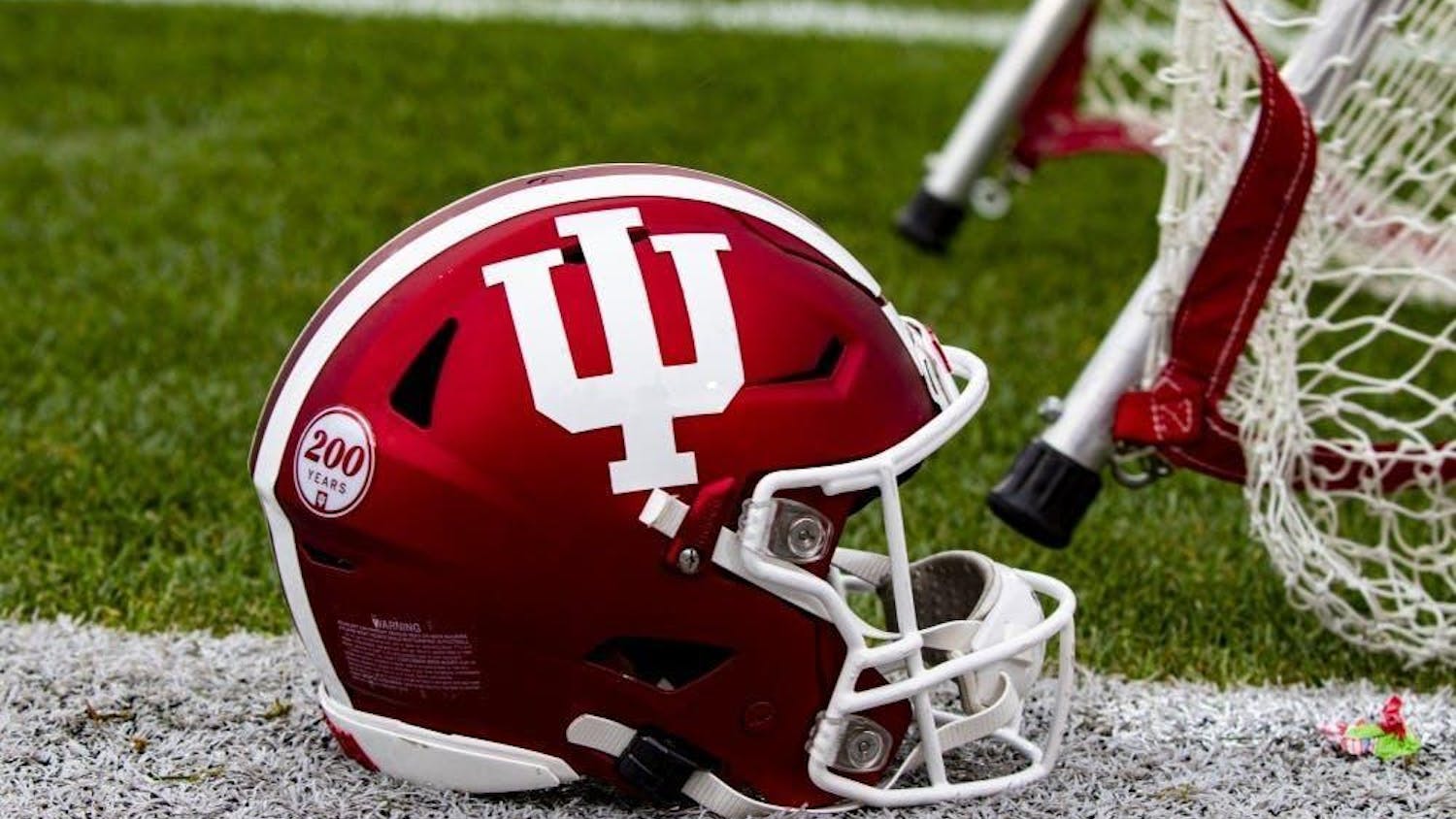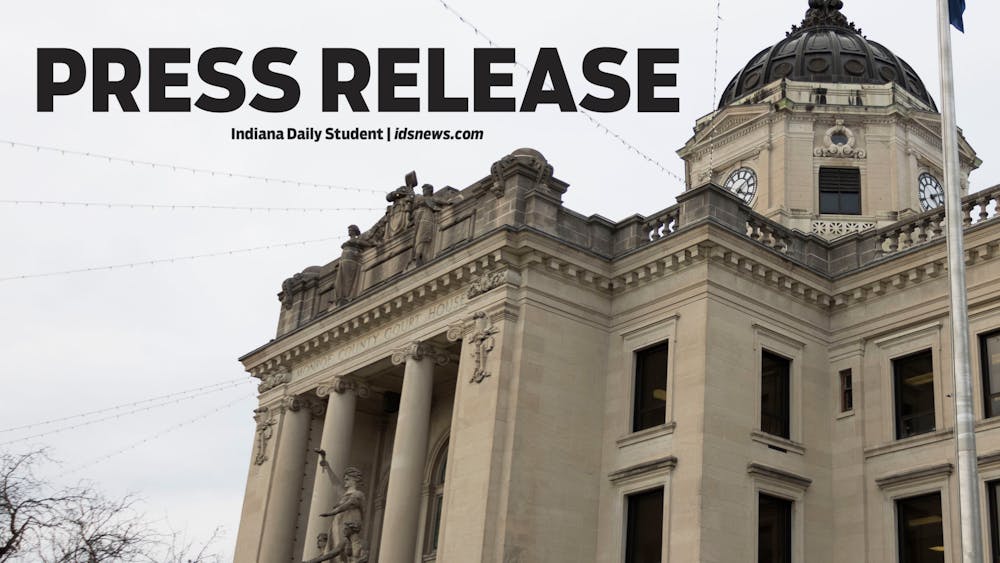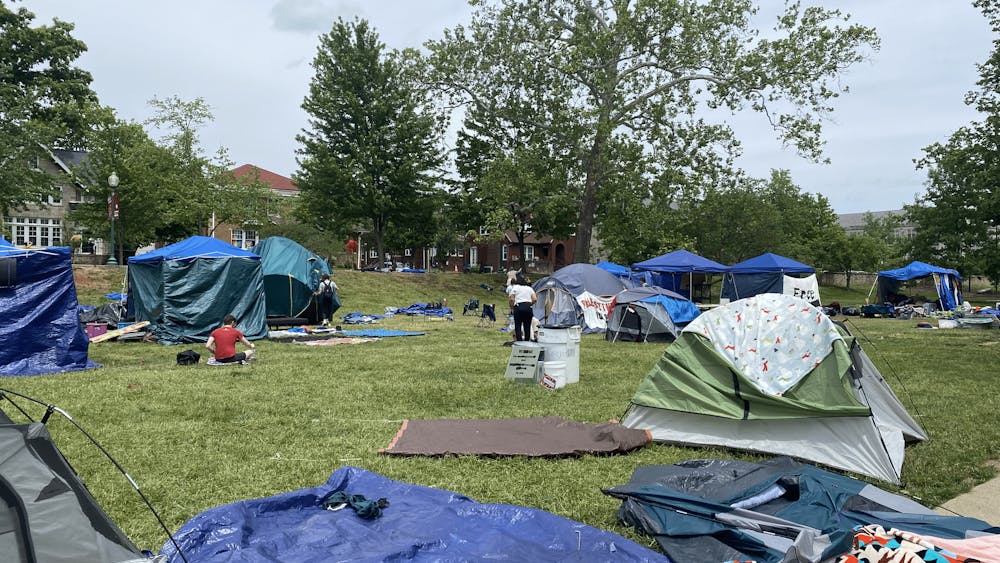Shahar Arieli, the deputy consulate consul general of the Consulate General of Israel to the Midwest in Chicago, was in Bloomington this week. He was invited by members of the Helene G. Simon Hillel Center and gave a talk there about Middle Eastern politics.
His job entails promoting relations between Israel and Midwestern states and nurturing cultural and educational cooperation between the U.S. and Israel.
The IDS asked Arieli about his job and his thoughts about the current state of Israel.
IDS Why should a 20-year-old in Indiana be interested in what’s occurring in Israel or even just Israel in general?
ARIELI First of all, I would like to say that we have been speaking about only one aspect of the state of Israel — the political conflict that we have, unfortunately, with our neighbors. But Israel is much, much more, whether it is an attractive tourist destination, whether it is a high-tech superpower. Israel, because of a lack of natural resources, we had to develop the only resource that we really had, which is the human resource. And our economy’s mainly based on high tech and export of high tech.
It is a well-known fact that Israel, after the Silicon Valley, Israel has the highest number of startup companies in high-tech, so that is another aspect of the state of Israel. Tel Aviv — we call it ‘the city that never sleeps.’ It’s really a party town.
From all my trips in the U.S., the trip that reminds me the most of Tel Aviv is Miami Beach, Florida. The climate, the architecture. This sort of bathhouse architecture. Yeah, and this atmosphere of 24-hours parties. Like Tel Aviv on the beachline, you’ll see people walking at 4 a.m. It’s a vibrant city ... and for Americans, Israel is the one true friend America has in the Middle East, which is an important part of the world, certainly in terms of strategic interests.
Israel is one island of stability and democracy that is always on the side of the U.S. I can tell you that in Israel on independence days, people actually put the American flag on cars alongside the Israeli flags. You will not see that in any other country in the Middle East. You will see American flags, but they won’t be on cars. They’ll be, you know, burned in the streets.
IDS How do you think the Arab Spring affected Israel? Because American news outlets didn’t really focus on that.
ARIELI I would say I want to be optimistic in the long range and hope that as more and more countries in the Middle East will turn democratic, hopefully, then Israel will not be so unique. We will be just one democracy out of many. And that, you know, it is a fact of history that never two democracies were involved in a war between them, and there’s a reason for that.
But in the short range, we do see that everywhere the Arab Spring gets to, extremism follows, and the forces which are rising in the short range are the extremist forces. So we are concerned, obviously.
One thing for sure is that Israel cannot really get involved in that because even if we want to support those pro-democratic forces in the Arab world, if we openly support them, that will be the kiss of death for them.
Because Israel is perceived in such a negative way by the Arab people. They don’t like Israel, so everyone that we support will become either a traitor or an accomplice with Israel, and we don’t want to do that to them.
IDS Since there have always been tensions since Israel’s creation between it and its neighbors, do you think it can ever really be resolved?
ARIELI It’s difficult to see an end to this complicated situation right now because the truth of the matter is Israel was never really accepted into the region by the neighbors.
In the beginning, they openly called for the destruction of Israel. They said we should throw the Jews to the sea. Now they understand that they can’t really say it in this way because it won’t be accepted, so they say other things.
But the fact is that in the Middle East, except for Egypt and Jordan, who have disagreements with us, all the other countries of the Middle East don’t recognize us. Even the (Palestinian) government is saying they are for what they call the “right of return,” which means millions of Palestinians should enter Israel, therefore turning it into a Palestinian state.
It’s not easy, but I think the understanding in the Middle East now is that Israel is here to stay, and they will have to make compromises, as well as we understand that we have to make compromises. It’s not only on their part.
Israel has to make compromises for peace, but the other side must be ready to accept the existence of the state of Israel. If we can do that, then we will go a long way in making compromises.
IDS Anything else to add?
ARIELI Speaking on Middle East politics, I think that maybe the number-one issue right now for the safety and stability for the Middle East, and the world, I would say, is the Iranian nuclear project and how to stop it.
IDS You think it needs to be stopped?
ARIELI It has to be stopped. Otherwise, once they develop a nuclear bomb, you will see other countries in the region, mainly Arab countries who are neighbors of Iran — you will see Saudi Arabia, you will see Egypt — you will see other countries developing nuclear weapons, and then you will have a nuclear arms race in the area where most of the oil reserves of the world are located, and you know regimes which are not exactly stable, not exactly democratic, you don’t want that.
I think you know we are on the right track ... We have been warning, I think seven years before 9/11, that the Iranian danger for the Western world comes from this sort of religious extremism that comes from the Middle East and nuclear weapons, when you combine them together. Which is what Iran is trying to do. They are extremist.
If you combine these two elements together, then you can have something that is going to make 9/11 look like child’s play.
Q-and-A with Israeli Consulate General to the Midwest Shahar Arieli
Get stories like this in your inbox
Subscribe





